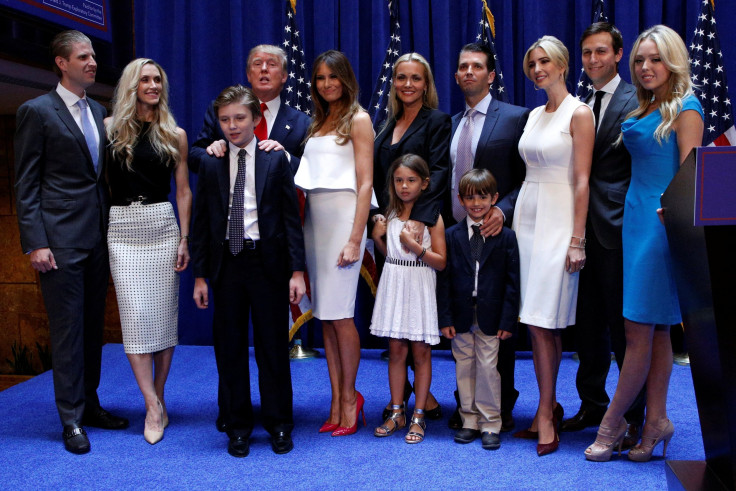Donald Trump Tax Plans Could Help Create More Donald Trumps: How Rich Families Become Dynasties

President-elect Donald Trump’s tax plan could prove a windfall for families much like his own: the uber-rich looking to keep their money in the family. That's how dynasties are made.
“If some his proposals go through, they would have a tremendous effect on very wealthy families,” says Angelo Robles, the founder and CEO of the Family Office Association, a membership organization that costs up to $16,500 a year to join and serves as a “think tank” for super-wealthy families. “His proposal on capital gains and the estate tax would be to the benefit of dynastic families.”
Trump's father, Fred Trump, became a millionaire, so the president-elect's grandchildren — he has eight already — are fourth-generation wealthy.
Here's how President-elect Trump's economic plan could help create more megarich families like the Trumps.
The Estate Tax:
In a speech at the Detroit Economic Club in August, Trump railed against what the GOP has long called the “death tax,” a 40% tax on estates above $10.9 million. “American workers have paid taxes their whole lives — and they should not be taxed again at death,” he said to loud applause. “It’s just plain wrong,”
Since the tax affects only the uber-rich, fewer than 5,000 families pay it each year. Many of those families are dynasties, like Trump’s. If President-elect Trump successfully repeals the tax, the super-rich will save nearly $270 billion over the next decade, passing along that nest egg to the next generation.
The 3.8% Investment Income Tax for Obamacare
Trump has vowed to repeal Obamacare. That may mean he will also eliminate a 3.8 % investment tax that went into effect in 2013. Though it affects only families making over $200,000 a year, the tax helped pay for Medicaid expansion — the portion of Obamacare that guaranteed coverage for low income Americans. If Trump scraps Obamacare, he will also be delivering a gift to high-income investors dinged by the 3.8 investment tax.
Capital Gains Tax
Income derived from capital gains is already taxed at a lower rate than income from employment. Trump has vowed to keep that system in place, but his tax plan adds a wrinkle that could end up benefiting dynastic families with similar holdings to his own. His proposal would allow wealthy individual to pass capital gains along to heirs — gains over $10 million would be taxed only when the assets are eventually sold. Most families can’t afford to sit on capital gains — but super-wealthy families can afford to hold onto inherited capital gains, postponing the the tax as long as possible.
Tax Cuts and Tax Holidays
Trump plans to cut the top tax bracket from 40% to 33 % — a major tax cut for the highest income earners in the U.S. He also wants to cut the corporate tax rate from 35 % to 15 %, and give companies with cash parked overseas a tax holiday to repatriate capital. While these proposals aren’t specifically targeting dynastic families, they would lessen the tax bite for wealthy individuals across the board.
Gift Tax and Generation-Skipping Tax
Both the gift and generation-skipping taxes are designed to prevent extremely wealthy individuals from avoiding taxes by transferring wealth through incremental gifts to their heirs. Though Trump has yet to speak out on these specific taxes, they’ve long been in the crosshairs of the GOP, and experts expect Trump to do away with them. This would allow wealthy families to engage in long term estate-planning, and spread their wealth among generations without incurring a hefty IRS bill.
Voters in the 2018 midterms and 2020 presidential elections could possibly stop or reverse these moves, said Robles. “After all, there’s only so many people who are incredibly wealthy — and they still only have one vote.”
© Copyright IBTimes 2024. All rights reserved.





















